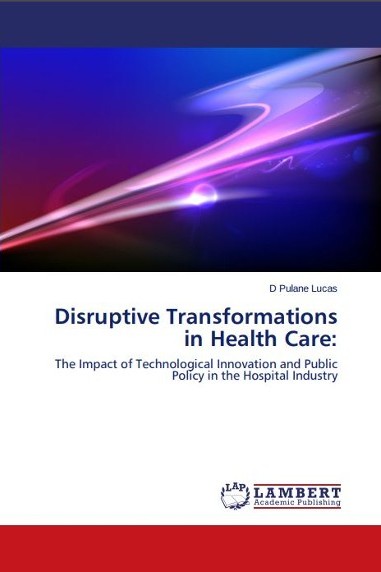About The Company
Dr. D. Pulane Lucas is the President and CEO of D. Pulane Lucas & Company, a consulting firm in Richmond, Virginia. At the firm, Dr. Lucas advocates cognitive flexibility as an approach to idea generation, problem-solving, and personal well-being. She is a consultant in research, proposal writing, and program evaluation. Her research interests focus on organizational change, disruptive innovation theory, and public and health policy.
Dr. Lucas is a prolific writer of research proposals, books, case studies, articles, and reports. In December 2017, Archway Publishing, Inc., released her third book, God and the Self: Insights from Major Thinkers in the Western Philosophical Tradition, which follows her two previous books, Voices from the Sisterhood: Spiritual Reflections, Volume 1 and Disruptive Transformations in Health Care: The Impact of Technological Innovation and Public Policy in the Hospital Industry.
 |
Disruptive Transformations in Health Care:
The Impact of Technological Innovation and Public Policy in the Hospital Industry
Advances in medical technology have altered the need for certain types of surgery to be performed in traditional inpatient hospital settings. Less invasive surgical procedures allow a growing number of medical treatments to take place on an outpatient basis. Hospitals face growing competition from ambulatory surgery centers (ASCs) that utilize innovative technology. The competitive threats posed by ASCs are important, given that inpatient surgery has been the cornerstone of hospital services for over a century. Disruptive innovation is heralded as a way to lower health care costs, while improving the quality of and accessibility to care. Yet, regulations that aim to control the effects of disruptive innovation in the hospital industry can limit access and keep costs high. Understanding better how surgical volume shifts between hospitals and ASCs is important to informing health policy debates. The study examines disruptive innovation theory in health care and the effects of policy reforms on the utilization of appendectomy, cholecystectomy, and bariatric surgery.
|